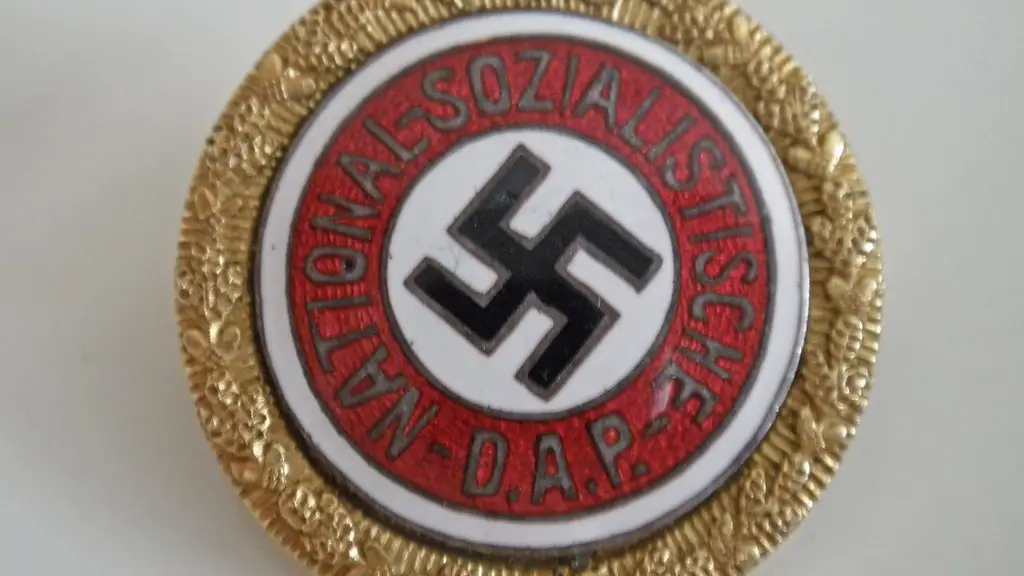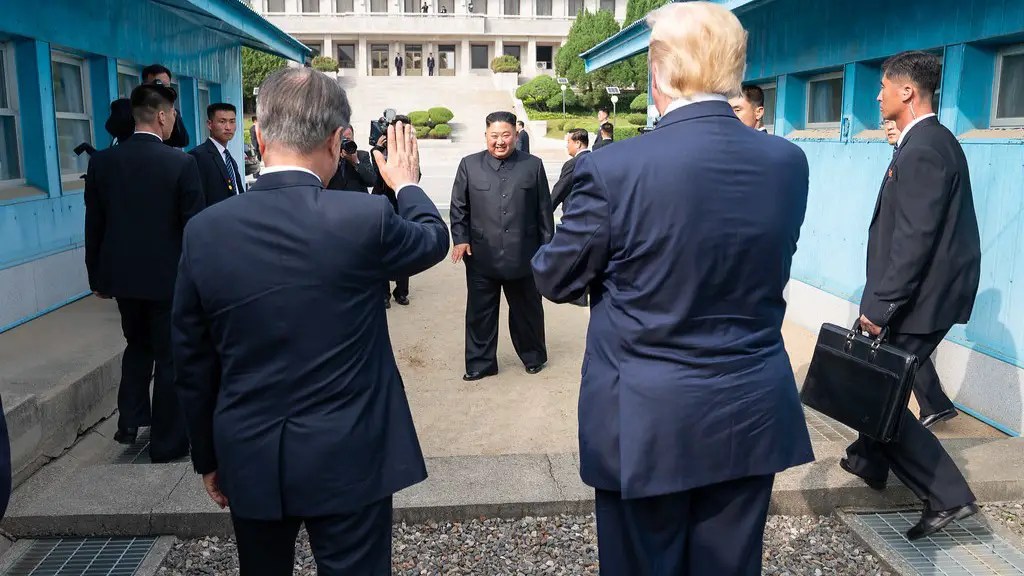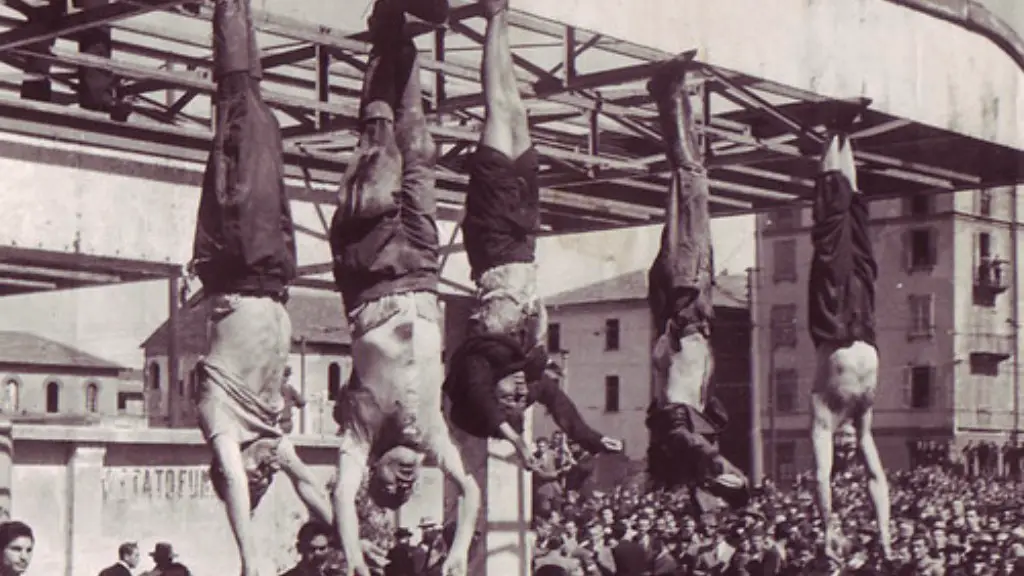No, Saddam Hussein was not part of 9/11. Although Iraq was accused of harboring terrorists and having weapons of mass destruction, there is no evidence to suggest that Saddam Hussein was involved in the September 11th attacks.
There is no evidence to support the claim that Saddam Hussein was part of 9/11.
Was Saddam Hussein in the Iraq war?
Saddam Hussein was the President of Iraq from 1979 to 2003. During his time in power, he led Iraq into war with Iran and Kuwait. His refusal to cooperate with international inspections for proscribed weapons led to the invasion of Iraq by the US and allies in the Iraq War.
The Bush administration justified the Iraq war as part of the broader War on Terrorism, citing the purported link between Saddam Hussein’s government and terrorist organizations, in particular al-Qaeda. In addition to Iraq’s alleged development of weapons of mass destruction, this was used as another justification for invasion.
Why did the war in Iraq start
The United States invaded Iraq in 2003 based on the belief that Iraq had a weapons of mass destruction (WMD) program and posed a threat to the United States and its allies. Additionally, some US officials accused Saddam of harbouring and supporting al-Qaeda. However, no WMDs were found in Iraq and the link between Saddam and al-Qaeda was never established. The invasion of Iraq was a controversial and highly divisive event, and its consequences are still being felt today.
The United States’ response to the 9-11 attack, namely the invasion of Afghanistan, had a deeply destabilizing impact on the Middle East and North Africa (MENA) region. In addition to ushering in war and instability, US post-war policies sparked a strong wave of anti-Americanism across MENA.
US policies in the wake of the 9-11 attacks and the subsequent invasion of Afghanistan were deeply destabilizing for the MENA region. In addition to creating a climate of war and instability, these policies also sparked a strong wave of anti-Americanism across the region. This anti-Americanism has had a profound impact on US relations with MENA countries, and has contributed to the region’s overall instability.
Was the US allied with Saddam Hussein?
The US Defense Intelligence Agency provided combat planning assistance and battlefield intelligence to Saddam Hussein’s military during the Iran-Iraq war. This intelligence helped Saddam Hussein’s military to plan and execute combat operations against Iran. The US also provided satellite pictures to Saddam Hussein’s military, which helped them to identify Iranian military targets.
Saddam Hussein was captured by the United States military forces in the town of Ad-Dawr, Iraq on 13 December 2003. Codenamed Operation Red Dawn, this military operation was named after the 1984 American film Red Dawn.
Did the U.S. get oil from Iraq?
The United States imported an average of 157,000 barrels of petroleum per day from Iraq in 2021. This represents a significant increase from previous years, and highlights the importance of Iraq as a key supplier of oil to the US. With tensions between the two countries simmering, it will be interesting to see how this relationship develops in the future.
US President George W Bush started the Iraq War on March 17, 2003. He argued for launching a military attack on Iraq and gave the Iraqi president 48 hours to leave Iraq.
Who owns Iraqi oil now
The Rumaila oil field is owned by the government of Iraq and is operated by a consortium of BP and CNPC. The field is located in southern Iraq and produces about 1.5 million barrels of oil per day. The Iraq Producing Field Technical Service Contract (PFTSC) is a service contract between the government of Iraq and the consortium of BP and CNPC. The consortium is responsible for the operation and maintenance of the oil field. The contract was signed in 2009 and has a term of 20 years.
The number of United States troops who have died fighting the wars in Iraq and Afghanistan had passed 7,000 at the end of 2019. This number does not include the approximately 177,000 national military and police from Afghanistan, Pakistan, Iraq, and Syria allies who have also died. Western allies have also borne high human costs. They died in a host of ways, including from enemy fire, improvised explosive devices, suicide bombings, and vehicle accidents.
Is the U.S. still in Iraq?
The US combat mission in Iraq formally concluded on 9 December 2021. US troops remaining in the country totaled 2,500 as of 30 December 2022. These troops were deployed mainly to Al Asad Airbase, Camp Victory, and Al-Harir Air Base.
The occupation of Iraq was a military campaign led by the United States in 2003 which overthrew the Ba’ath Party government of Saddam Hussein. It was characterized by a large US military deployment on Iraqi territory, which continued until 2011 when US troops were withdrawn from the country. The occupation led to a significant increase in violence and terrorist activity in Iraq, as well as a sharp decrease in the country’s overall stability.
How were the Saudis involved in 911
The “report” to which this topic refers is presumably the 9/11 Commission Report, which was released in 2004. In it, the Saudi government is identified as being the primary financial backer of al-Qaeda. Additionally, 15 of the 19 hijackers who carried out the 9/11 attacks were Saudi citizens.
The Saudi government has long been suspected of funneling money to terrorist organizations like al-Qaeda, and this report seems to confirm those suspicions. The fact that so many of the hijackers were also Saudi citizens raises further questions about the Saudi government’s involvement in the attacks.
The 9/11 Commission Report is a sobering reminder of the dangers of terrorist financing, and the need for stricter controls on Saudi Arabia’s funding of extremist groups.
The Global War on Terror, also known as the War on Terror, is an international, American-led military campaign launched following the September 11, 2001 terrorist attacks. The aim of the War on Terror is to combat terrorist organizations such as al-Qaeda and other associated groups. The War on Terror has been criticized by some for being open-ended and vague, and for being used as a justification for a range of policies that may have nothing to do with combating terrorism.
How many died in 9 11?
It is important to be able to critically evaluate information that you find on the internet. Unfortunately, not all information is reliable or accurate. Learning to critically evaluate internet sources can help you to find the information that you need, while avoiding misinformation.
There are a few key things to look for when evaluating internet sources:
-Check the source. Is the information coming from a reliable website?
-Look for evidence. Does the information have supporting evidence?
-Consider the bias. Is the information presented without bias or prejudices?
-Think about the motivation. Why was this information created? Is there a hidden agenda?
By taking the time to critically evaluate internet sources, you can ensure that you are getting accurate information.
The US and UK governments have claimed that the coalition’s aim in invading Iraq was “to disarm Iraq of weapons of mass destruction [WMD], to end Saddam Hussein’s support for terrorism, and to free the Iraqi people”. However, a UN inspection team found absolutely no evidence of any WMD in Iraq. This raises questions about the true motives of the US and UK governments in invading Iraq.
When did the U.S. stop supporting Iraq
Donald Trump has been a controversial president, to say the least. One of his most controversial policies has been his position on the Iraq War. Following the vote, Trump initially refused to withdraw from Iraq, but began withdrawing forces in March 2020. This has been a highly controversial move, with many people arguing that Trump is putting America’s safety at risk. Only time will tell if Trump’s decision to withdraw from Iraq will be a wise one.
In 1988, the United States launched Operation Praying Mantis against Iran, in retaliation for the Iranian mining of areas of the Persian Gulf as part of the Iran–Iraq War. The American attack was the largest American naval combat operation since World War II.
Final Words
Saddam Hussein was not part of 9/11.
It is unlikely that Saddam Hussein was directly involved in the 9/11 attacks, though it is possible that he may have had some knowledge of them. Saddam Hussein was a ruthless dictator who was known for his brutality and willingness to kill. If he had been involved in the 9/11 attacks, it is likely that he would have been caught and killed.





